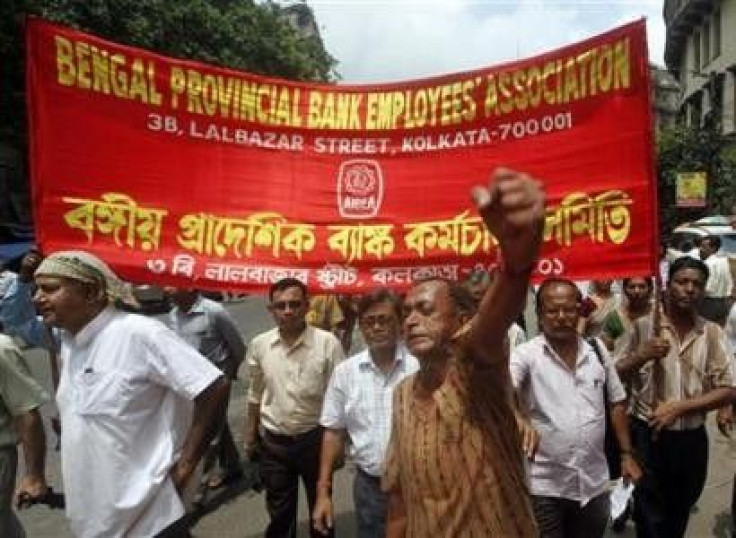India’s State Bank Employees Strike To Protest Government’s Planned Reforms

More than 1-million employees of state-owned banks across India have declared a two-day strike in order to protest the government’s plans for reforming the financial services sector.
Workers fear that programs to enable more mergers and the injection of private capital into the banking sector will lead to job cuts.
About 70,000 bank branches – including The State Bank of India, the nation’s largest public sector bank – will be idle.
Such routine operations as counter services, foreign exchange transactions, export-import, and check clearing, have already been disrupted.
Vishwas Utagi, secretary of the All India Bank Employees Association (AIBEA), the largest trade union of bank employees in India, told Reuters: "The strike will be a total success. We are not against reform, but these are reforms against the public sector banks. We will protest on the streets.”
Utagi noted that 10,000 bank employees will stage a rally at Azad Maidan, a huge sports ground in Mumbai, on Wednesday.
"[The proposed reforms] are aimed at [the] merger of banks, allowing more private and foreign capital into banks, unrestricted voting rights, decision to grant licenses to corporate houses to start new banks,” Utagi told Indian media.
“They are intended to hand over the Indian private sector banking to multi-national banks and increasing [the] presence of Indian corporate and foreign direct investment in public sector banks.”
As a result, he warned, many rural banks would close, while others would become privatized.
BBC reported that the government’s efforts to reform and streamline the banking, retail and insurance sectors have been hampered by political opposition. However, foreign investors have long demanded that India liberalize its financial systems.
The Times of India reported that foreign investors cannot own more than 20 percent of India’s state banks – if the New Delhi parliament passes proposed amendments to banking laws in the coming days, the voting rights of shareholders (including foreign investors) would rise -- although the 20 percent cap will remain in place.
"Any move towards increasing the private sector role in the banking sector is a big fear for the unions and that makes them oppose it," D.H. Pai Panandiker, head of the New Delhi-based RPG Foundation think tank, told the Times.
"The changes in the banking laws can improve the health of the banks quite considerably. The unions fear if the government continues with the reforms their positions will weaken and it will lead to job losses."
Jagannadham Thunuguntla, the head of equity at Delhi-based brokerage SMC Capital, said that foreign investors would pour more money into India should the reforms pass.
"From the market point of view, it is good because [foreign institutional investors (FIIs)] will have a lot more say. Probably, we may expect more FIIs buying in the banking sector."
The strike will also focus on the government’s plan to outsource some banking activities to outside agencies and other measures that the union fears will undermine the collective bargaining rights of workers.
For now, battle lines have been drawn.
"Unless the government relents or the government gives some positive response, we are going to intensify our agitation," warned J.P. Sharma, vice president of the AIBEA.
© Copyright IBTimes 2024. All rights reserved.











